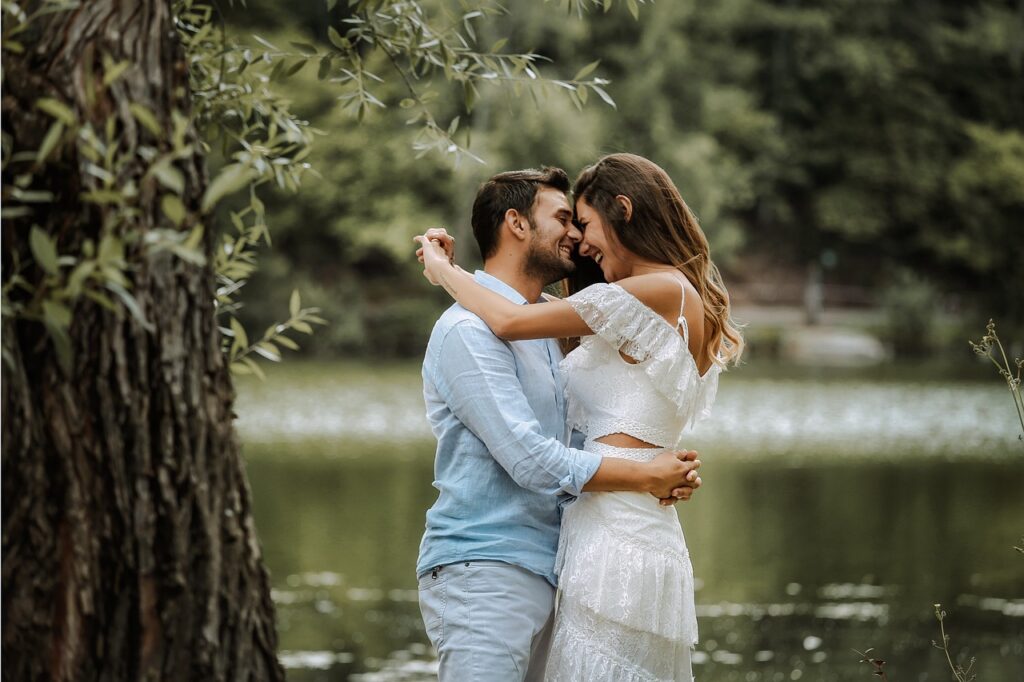
I recently had a client call me and request that I set up a trust for their brother. The brother is getting married in about 6 weeks, and the brother wanted to set up a trust to protect his assets from being claimed by his new wife. This was going to be a second marriage for the brother, and the brother wanted to keep the assets he earned during his first marriage separate from his new wife, so that his kids from his first marriage would be able to inherit those assets. I know I could have helped the brother to accomplish what he wanted to do, but I was not able to help him because I am already booked out for the next 7 weeks and the timing just did not work out.
However, this request did get me thinking about second marriages and the unique challenges associated with estate planning for second marriages. Many second marriages occur later in life, after someone has already accumulated assets. Often, a person’s first marriage produced children. The person entering a second marriage is quite likely to want to protect assets earned during a first marriage for their children, and ultimately pass those assets on to the children from the first marriage. Protecting assets from a new spouse should probably include some sort of marital agreement, and also may need to include trust planning. I most often see that those who enter second marriages certainly want to love and care for their new spouse, including financially supporting the new spouse, but also want to protect assets for children from the first marriage.
Keeping Your Assets Safe for Your Children
 Most of the clients I have who are in their second marriage have children from the first marriage. The spouse who has children from a previous marriage often wants to keep any assets earned during a first marriage for the benefit of the children from that marriage. Sometimes the children are adults by the time a second marriage occurs, and sometimes the children are younger. In either case, the spouse with children from a previous marriage wants to take care of the children, and the children don’t want their parents to be taken advantage of in this type of situation.
Most of the clients I have who are in their second marriage have children from the first marriage. The spouse who has children from a previous marriage often wants to keep any assets earned during a first marriage for the benefit of the children from that marriage. Sometimes the children are adults by the time a second marriage occurs, and sometimes the children are younger. In either case, the spouse with children from a previous marriage wants to take care of the children, and the children don’t want their parents to be taken advantage of in this type of situation.
Trusts can be a most helpful tool in this situation. A trust allows you to control what happens to your assets after you die.
If you are in a second marriage, and you die first, then you can dictate that some assets can be given to your children from your first marriage immediately, while other assets may be held in trust for the use of your new spouse. When the new spouse passes away, then remaining assets can go to your children from the first marriage. In this way, using a trust can allow you to take care of your new spouse, while still ensuring your children will be able to inherit assets in the end.
Some couples are sure their new spouse would never cut off children from a previous marriage if they just have a will, but setting up a trust legally ensures that assets can only be used for correct and allowed purposes. Using a trust gives legal force to the terms and conditions of preserving assets for children from a first marriage. You can know that your wishes will be carried out and legally enforceable by using a trust, instead of just hoping your spouse will follow your wishes when you are gone.
Watch Out for Statutory Spousal Protections
The Colorado Statutes have provisions that protect spouses from being fully cut off from financial assets by the other spouse. Even with an estate plan, the following rules apply, but they can be changed, modified, or ignored, in your estate plan, but only if you have one.
According to Colorado law, for each year a couple is married, a surviving spouse is entitled to 5% of the deceased spouses’ assets, up to 50% after 10 years. 50% is the maximum spousal protection offered by the Colorado Statutes. Of course, you can always give your spouse more, but the statutes do need to be considered.
The spousal portion of assets is also something that can be declined, or waived. This often happens in a prenuptial agreement, post-nuptial agreement, or just a marital agreement, as we call them under Colorado law. Spouses to a second marriage can agree that they are getting married for love, and not money, so they don’t need to claim against the other spouse’s estate. Instead, they can agree that each spouse can have their own estate plan, and that assets from that estate plan will go to whomever each spouse chooses, without interference from the surviving spouse.
Of course, both spouses will need to agree to waive their right to claim against the other spouse’s estate. Some prenuptial agreements include this type of waiver of claims against a deceased spouse’s estate, but many prenuptial agreements focus only on what happens in the case of a divorce. If you are going into, or currently in, a second marriage, you should seriously consider how a spousal claim would affect your estate plan and consider some sort of agreement between the spouses as to how assets will be distributed at the death of one spouse…and who can claim what assets.
Plan For Your Assets to Do What You Want in Your New Marriage
Not every estate plan for people in a second marriage needs to protect assets from the other spouse, and protecting assets for the children of a first marriage doesn’t mean you are somehow denying assets or financial care to a spouse. Instead, by planning your estate to include both your spouse and your children from a previous marriage, you can avoid disputes among a new spouse and your children. An estate plan that treats your new spouse fairly, while also treating your children from a previous marriage fairly, is one that helps keep a family happy and preserve peace in your marriage and family relationships.
You get to choose what you want to do, and you can choose what is most fair for your new spouse and your children. Not everyone’s plan will look the same. One person may want to give a new spouse access to everything, while another may only want a new spouse to have access to part of the assets. There is not one correct way to split assets, but the one thing to do correctly is to have an estate plan that reflects what is best for your current spouse, your children, and you.
Talking with an experienced estate planning attorney can help you get your estate plan in place to reflect what you want to have happen. You can make an appointment to get your estate plan set up correctly by clicking the link below.

 720-730-7274
720-730-7274









